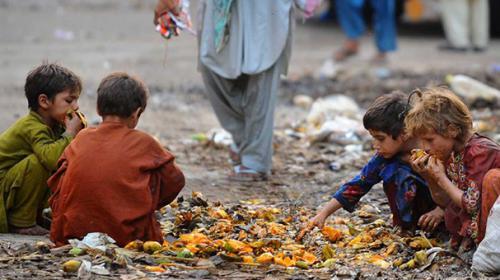The Minister of Information and Culture, Alhaji Lai
Mohammed, has said that sustainability is absolutely necessary if tourism is to
achieve its full potentials, which include being a catalyst for economic growth
and poverty eradication, reports NaijaAgroNet.
Speaking in London, Wednesday to mark the 2017 World Tourism
Day, he said, without sustainability, tourism cannot generate benefits to all
stakeholders, solve serious problems such as extreme poverty, and preserve
precious natural and man-made resources on which human prosperity is based.
Referring to the theme of this year's World Tourism Day,
which is 'Sustainable Tourism - Tool for Development', he said Member States of
the UN World Tourism Organization (UNWTO) are encouraged to make sure that
their policies and actions for tourism development and management fully embrace
the principles of sustainability.
''The sustainability principles refer to the environmental,
economic and socio-cultural aspects of tourism development, and a suitable balance
must be established among these three dimensions to guarantee its long-term
sustainability,'' Alhaji Mohammed said.
He said that in the context of the universal 2030 Agenda for
the Sustainable Development Goals (SDGs), the United Nations General Assembly
designated 2017 as the International Year of Sustainable Tourism for
Development, underscoring its power to help eradicate poverty.
''Tourism was singled out in three of the 17 Sustainable
Development Goals of sustainable economic growth and decent employment, sustainable
production and consumption, and the conservation and sustainable use of oceans
(Goals 8,12 & 14).
''Today, tourism generates 10% of the world’s GDP, one in
every 10 jobs, and 30% of world trade in services. It is key to many countries’
economies and livelihoods. It has evolved from an industry engaged in and
patronized only by the rich and elites of the society, to an industry enjoyed
by all with significant impact on the nation’s economy.
''As an invisible export, tourism creates a flow of foreign
currency into the economy of a nation through public revenue which comes in the
form of taxes, duties, licenses etc; business revenue derived from services
provided by restaurants, hotels, transport, shops etc and from local resident
revenue which come in the form of wages, salaries, rent, interests in
investments. Most of these revenues especially those that accrue to the business
establishments and the local residents are usually ploughed back into the
economy to create additional business thereby generating grater revenues and
increasing employment opportunities,'' the Minister said.
He said while Government will play its part in the
development and management of tourism and in making it more sustainable, the
real key to making Nigeria's tourism industry flourish lies with the industry itself
and the businesses and organizations at its heart.
''Governments use a number of mechanisms to encourage
greater private-sector engagement, capturing its expertise in ways that will be
beneficial to the companies themselves as well as population. The private
sector, on the other hand, has an opportunity to work collaboratively with
government to yield unprecedented returns in both economic and human capital,
and fulfilling the promise of a more equitable, productive, and prosperous
global community,'' Alhaji Mohammed said.
Overall, he said, sustainable tourism requires the informed participation
of all relevant stakeholders, as well as strong political leadership to ensure
wide participation and consensus building.
The idea of World Tourism Day was initiated by a Nigerian,
late Mr. Ignatius Amaduwa Atigbi, the then Secretary General of the Nigeria Tourism
Association (NTA), now Nigeria Tourism Development Corporation (NTDC), and
Chairman of Africa Travel Commission (ATC). It was adopted at the 22nd General
Assembly of the International Union of Official Travel Organizations (IUOTO) in
1971.
The 27th of September of every year is marked as the World
Tourism Day to create awareness for tourism as a tool for economic growth and
promotion of international peace and understanding.
Uboshe Uboshe/GEE
... Linking agrobiz, sustainable environs, people & technology



















